Menopausal women who eat potassium-rich foods are less likely to die from menopausal symptoms than women who do not.
Menopausal symptoms can be tough, excruciating, discomforting, and every other negative adjective in the dictionary. However, it doesn’t mean it cannot be managed or eradicated. The period of menopause introduces a woman to a new phase of life. Menopause isn’t just the inability to bear children; it is also the time when ovarian failure can lead to increased risks of developing several diseases that, in many cases, can be severe.
Many treatment options have been made available to stop the problem of menopausal symptoms, including hormone therapy. Today, hormone therapy is widely used by many menopausal women worldwide to effectively manage and treat menopausal symptoms. However, the need for alternatives has increased since the risks involved in using hormone therapy have been uncovered.
To deliver the best treatment alternative for menopausal women, professionals in the medical field have done quite well in organizing studies and bringing the best treatment options for menopausal symptoms. A Series of research showed that using potassium could help women go through a smooth transition into menopause.
Potassium and General Health
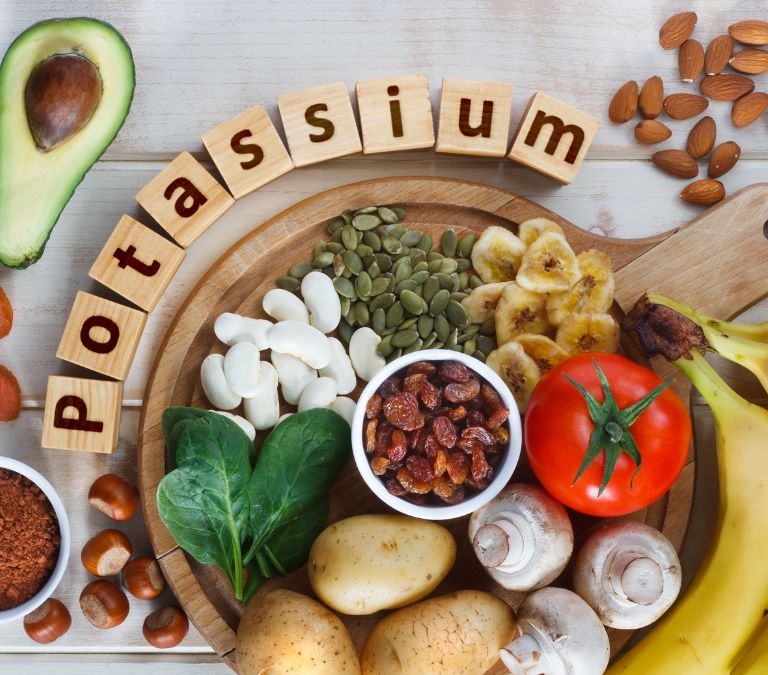
Just like many other nutrients, potassium is important for several reasons. Potassium is an essential nutrient that serves as an electrolyte even in the body. As an electrolyte, potassium facilitates the conduction and flow of electrical impulses in the body. Besides being electrolytes, potassium can help with several bodily functions like heart rhythm, nerve impulses, water regulation, digestion, pH regulation, and blood pressure.
Potassium is so important that any little deficiency could lead to conditions like irregular heartbeat, vomiting, nausea, muscle weakness, and extreme fatigue. Even with the importance of potassium in the body, it is not produced by the body. It means that dietary options and supplementation are important to get an adequate amount of potassium in the body.
Today, there are calls for menopausal women to consume more veggies and less caffeine, drink more water, and terminate smoking cigarettes. In a nutshell, menopause introduces you to several lifestyle changes that, sometimes, won’t be comfortable or pleasing. However, going through a smooth transition into menopause is paramount, and following these guidelines is of utmost importance.
With more minerals and nutrients being unraveled as likely options for managing menopause, supplementation has become very popular among menopausal women. Potassium is used today by menopausal women to help with their symptoms.
Potassium and Menopause
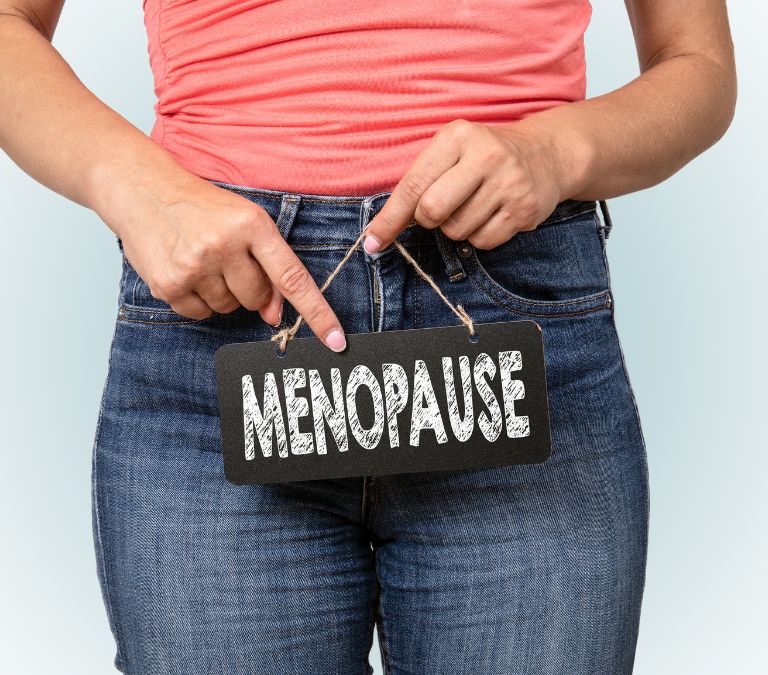
Menopause is a delicate phase of every woman’s life, often plagued by several diseases and conditions. The symptoms associated with menopause are the reason many menopausal women today see menopause as a disease even though it isn’t.
With declining levels of hormones caused by ovarian failure, the average menopausal woman becomes vulnerable to conditions like hot flashes, night sweats, osteoporosis, bloating, cardiovascular diseases, rapid weight gain, vaginal dryness, depression, anxiety, memory loss, and even certain cancers. Menopausal women have been advised to change their lifestyle, diet options, and other things that could aggravate these menopausal symptoms to avoid these problems.
Potassium has many nutritional benefits, which are advantageous for menopausal women. Generally, studies have shown that menopausal women who eat more potassium-rich foods are less likely to develop severe menopausal symptoms like cardiovascular diseases and stroke. With the symptoms associated with menopause, potassium has been studied as a likely treatment and management option for them. Here are some ways potassium can help with menopausal symptoms:
Potassium for Osteoporosis
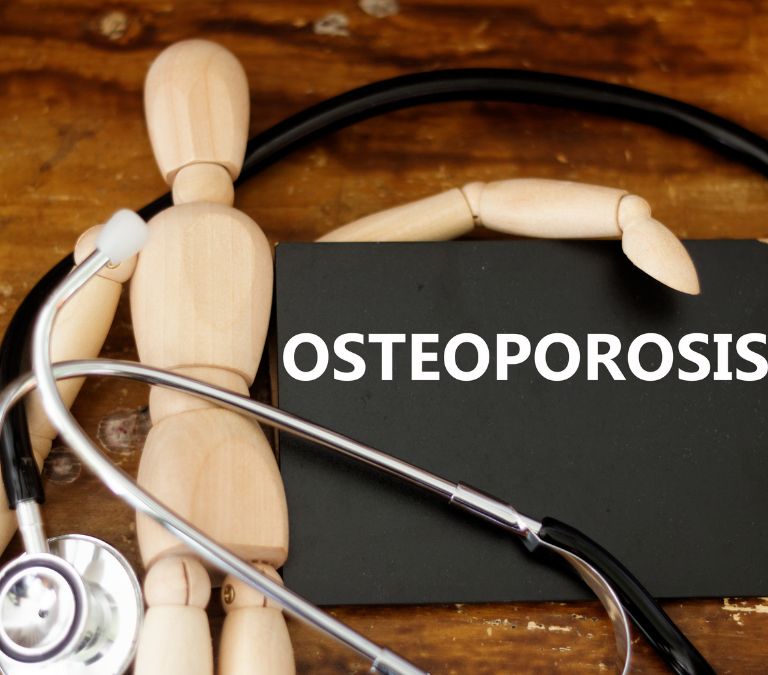
During osteoporosis, the fragility of the bones increases, and this makes the bones easier to fracture. Osteoporosis is very common in menopausal women. Osteoporosis and other bone-related problems have been described as characteristic symptoms of menopause. While scientists have not established a definitive cause for osteoporosis, hormone fluctuations during menopause have been proven as one of the many causes of osteoporosis.
Since the estrogen hormone plays a role in regulating bone mass and the entire bone formation process, menopausal women are more at risk of developing osteoporosis since the decline in estrogen levels is imminent. The link between menopause and osteoporosis is why more women have osteoporosis and other bone-related conditions than men.
While vitamin D and calcium have been proven long ago as effective treatment options for osteoporosis, potassium has been observed and proven to play major roles in developing and maintaining a healthy skeletal system.
Studies have shown that women, who take more potassium supplements and consume more potassium-rich foods, are less likely to develop menopausal osteoporosis. In menopausal women, osteoporosis is more likely to develop in the spine and hip region.
Regular intake of potassium has been studied to cause improvements in these regions. Studies have also shown that regular dietary potassium intake can reduce calcium loss in the bone. By doing this, bone density is preserved, reducing the risk of developing osteoporosis.
Potassium Intake = Reduced Risks of Cardiovascular Diseases
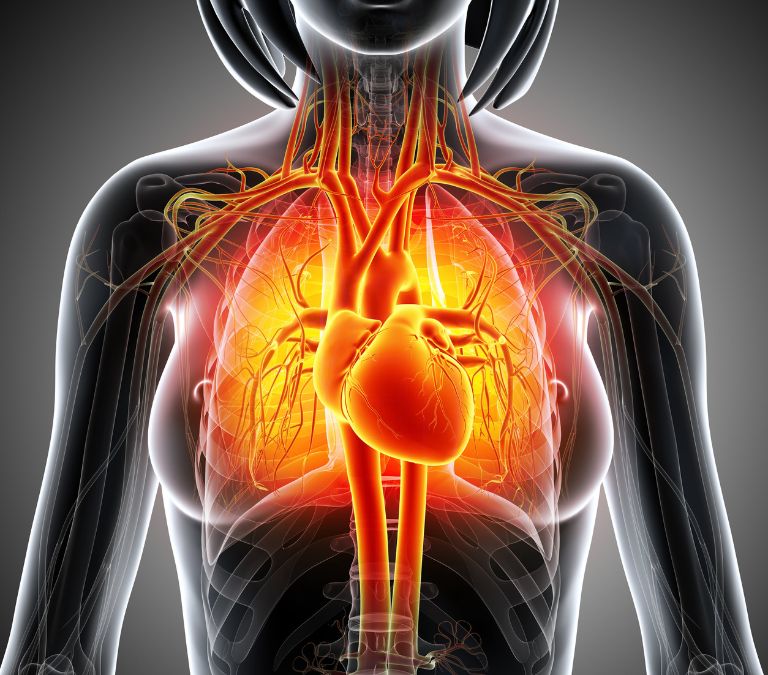
Heart-related diseases are also symptoms that affect menopausal women. However, it is important to know menopause doesn’t cause cardiovascular diseases. A woman’s risk of cardiovascular diseases increases with age, which is why diseases related to the heart are more common in menopausal women. Also, the declining estrogen level during menopause could trigger the buildup of cholesterol in the blood vessels in the heart and brain. The cholesterol clogging in these regions can lead to stroke and other CVDs.
Many women see menopause as the body’s way of communicating retirement. For this reason, they quit their jobs and adopt a sedentary lifestyle. Poor lifestyle options, stress, and hormone fluctuations are the main reasons menopausal women suffer the most from cardiovascular diseases. Regardless, studies have shown that intake of potassium can be beneficial in helping to maintain a healthy cardiovascular system.
Studies have shown that increased potassium intake could help them in the prevention of hardened blood vessels, which contribute largely to several diseases of the cardiovascular system. While potassium can be important for preventing cardiovascular diseases, it is important that you do not consume too much of it, as an overdose of potassium could lead to very severe complications. Speaking to a doctor is important; they always know what’s best for you.
Potassium Helps Regulate Blood Sugar
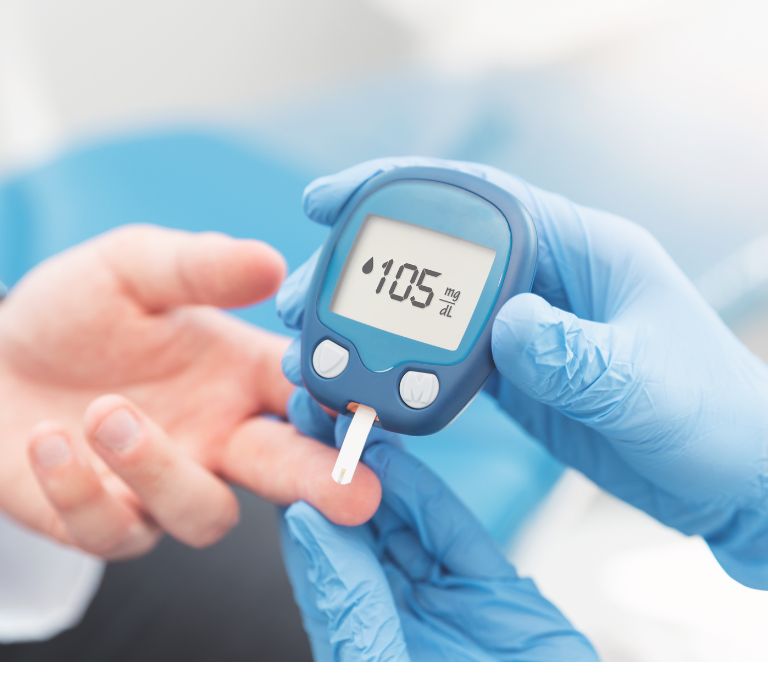
Diabetes is the 4th major cause of death in menopausal women in the United States. For a long time now, the effects of menopause on blood sugar have been quite controversial. The controversy surrounding the link between menopause and blood sugar results in older adults being more likely to suffer from diabetes than younger adults.
It means that the rise of diabetes in menopausal women could be caused by aging, not menopause. However, studies have shown that the change in metabolic functions experienced during menopause may slightly increase the risk of menopausal women to high blood sugar and other cardiovascular diseases.
Potassium can help facilitate insulin production, which can help regulate blood sugar levels to help menopausal women with the problem of high blood sugar. When the glucose in the body becomes too much, potassium stored in the cells is released into the blood to increase the potassium levels.
By doing this, the insulin hormones in the blood move glucose into the cells. This mechanism is very important because, without insulin, glucose would not be able to go into the cells. By facilitating insulin production, potassium has helped the body regulate blood sugar.
However, this process usually leads to a rapid decline in potassium levels. Menopausal women are advised to take potassium supplements and foods rich in potassium. If there is not enough potassium in the body, less insulin will be produced, which can lead to the buildup of glucose in the bloodstream, which can be fatal, especially for menopausal women.
Potassium for a Healthy Mental Health

Menopause increases depressive habits in women. Sometimes, the symptoms of menopause can be excruciating to the extent that mental health is heavily affected. Today, more women are suffering from mental-related problems than men. Problems like depression, panic attacks, moodiness, and even memory loss are more common in menopausal women than in other groups of women.
While there is no substantial clinical evidence that menopause directly affects depression, many women with a history of the premenstrual syndrome have experienced increased irritability and mood swings during menopause. On the other hand, studies have shown that women who experience severe menopausal symptoms without effective treatments are likely to develop severe problems with their mental health.
On the effects of potassium in easing mood swings, anxiety, and depression, studies have found that potassium intake leads to effective regulation of serotonin, a hormone known to help calm the central nervous system. Serotonin plays a major role in several bodily functions like digestion, wound healing, sleep, mood, and sexual desire. Serotonin is also known to help in the regulation of mood.
When potassium is taken into the body, the effects of serotonin in the brain are amplified, which can go a long way in calming and ensuring serenity even during tense situations. The potassium in the body can go as far as controlling the transportation of serotonin to the brain’s neurons, which can help maintain positive thinking and happiness.
Menopausal women with low potassium levels are more likely to develop more severe cases of anxiety, moodiness, and mild cases of depression. After these women increased their potassium-rich foods, significant improvements in general mood were observed.
Potassium for Hot Flashes

Hot flashes are the most common menopausal symptoms. Research has shown that more than 70 percent of menopausal women have experienced hot flashes. Since different women react differently to menopause, the severity of hot flashes varies in different women. For some women, hot flashes are mild and usually cause no serious issues. For other women, hot flashes are extremely painful and discomforting, so unintentional measures like wetting the body or lowering the air con’s temperature must be taken.
Even with more hot flashes reported in menopausal women, the link between menopause and hot flashes hasn’t been comprehensively defined. However, several researchers have pointed out that a decline in hormonal levels is the main reason menopausal women experience hot flashes.
These studies suggest ovarian failure could cause a decline in the amount of estrogen in the hypothalamus to the extent that its sensitivity to temperature changes becomes heightened. With the increased sensitivity of the hypothalamus, the brain automatically takes measures to warm the body from any slight change in the surrounding area’s temperature. This research is still subject to numerous controversies.
Studies have shown that increasing potassium content in the body could lead to a decrease in the body’s sodium content. This mechanism is important because sodium increases blood pressure while potassium does otherwise. Studies have shown that menopausal women who experience frequent hot flashes are more likely to have high blood pressure. It has also been observed that one-third of women experiencing hot flashes have significantly high systolic pressure. By helping to reduce blood pressure, potassium can play a role in reducing hot flashes in menopausal women.
Potassium Helps Prevent Stroke

Studies have shown that high potassium intake could reduce your risk of developing stroke. In the studies conducted, individuals who consumed more foods with low potassium were 1.5 times more likely to have a stroke. Other studies have also shown that people with low potassium were twice as likely to die from stroke. Menopausal women are more at risk of getting a stroke because, during menopause, the estradiol hormone declines. This decline can damage blood vessels or increase the risk of developing other factors that facilitate stroke development.
Potassium Can Help With Menopausal Bloating

Bloating is very common in older women. Many women in the mid-ages of their lives have complained of increases in the size of their stomachs. Most times, an increase in stomach size results from having too much to eat or weight gain in the abdominal region. While a bigger stomach is a characteristic feature of bloating, it is important to know that bloating is predominantly associated with an increase in the number of fluids in the stomach.
Bloating is more common in perimenopausal women than it is in menopausal women. It is because, during perimenopause, the estrogen levels go through alarming fluctuations. Sometimes it’s high, and sometimes, it’s very low. In cases of high estrogen levels, the body retains more fluid than normal, leading to bloating. Menopausal bloating is not very common compared to other symptoms but has been reported in many women worldwide.
Studies have shown that potassium can help reduce bloating for both menopausal and perimenopausal women. The ability of potassium to stop bloating arises from the fact that it plays a big role in regulating fluid levels in the body. The high salt level in the body is followed by high fluid content.
When you eat foods with high salt content, the amount of sodium in the body increases, which triggers the cells to hold more water than usual. Potassium intake can help take the sodium out of the body. As a neurotransmitter, potassium can help transport messages from the brain to the digestive system’s muscles.
The transportation of these messages is important for expanding these muscles to help regulate digestion in the body. It means that low potassium levels in the body may result in the inability of these messages from the brain to be transmitted effectively to the muscles of the digestive tract. Low potassium levels in the body can lead to bloating.
Potassium Can Help With Fatigue Caused By Menopause

It is normal to feel tired. However, menopausal tiredness is not normal. Menopausal fatigue usually comes from long-lasting exhaustion, which can cause a lack of concentration, mood swings, and low productivity. Many menopausal women have reported difficulties in getting healthy sleep.
The reason for sleep disruption during menopause is quite vast. While hot flashes and night sweats can cause the inability to get good sleep, hormone fluctuations can also cause the brain to wake up frequently in the middle of the night. Studies have shown that women who do not get long sleep hours will find it very difficult to maintain agility and activeness during the day. These are characteristics of menopausal fatigue.
Potassium can help menopausal women fatigue. Since potassium helps in muscle contraction, deficiency of potassium in the body can lead to weaker muscle contractions. Besides its role in muscle contractions, potassium has also been linked to insulin production in the body.
Potassium deficiency will lead to low insulin, which can cause high blood sugar. With more glucose in the bloodstream, the body tries to produce more insulin to eliminate the excess sugar. When there isn’t enough energy to reduce the sugar in the blood, energy is derived from fats, which can cause fatigue. Potassium is important for reducing fatigue in menopausal women.
Potassium Helps You Lose Weight

Studies have shown that weight gain during menopause is easier than during the reproductive years. Maybe you could comfortably eat an extra burger during your reproductive years without experiencing any significant gain in weight. During menopause, eating an extra burger can make you gain weight. Generally, rapid weight gain at any stage in life is not advised. During menopause, however, the dangers of weight gain can be more severe.
Weight gain during menopause can increase your risk of high blood sugar, cardiovascular diseases, hot flashes, night sweats, and certain cancers. The dangers of weight gain during menopause are why menopausal women are advised against living a sedentary lifestyle.
Studies have shown that menopausal women, who were active participants in exercises and other physical activities, were less likely to develop severe symptoms of menopause. Unsurprisingly, however, potassium has been studied as a likely inhibitor of weight gain in the body.
The effects of potassium on preventing excess fluid retention, building muscles, aiding metabolic activities, and promoting electrolyte balance have been attributed to helping with weight loss. Studies have shown that a higher potassium intake would lead to larger decreases in body mass index.
Potassium Can Help You Sleep
Many menopausal women today find it quite difficult to get quality sleep. From the pain of hot flashes to the discomforts of night sweats, sleep distortion and irregular sleeping patterns have become very popular among many menopausal women worldwide.
Many women have resorted to using pills and alcohol to get quality sleep. However, it is important to know that these substances may make your menopausal symptoms worse. While there are techniques to get good sleep while in menopause, studies have shown that potassium intake can be effective enough in making you get the sleep you need.
General Symptoms of Potassium Deficiency
Also known as hypokalemia, potassium deficiency is not normal. Underlying conditions cause potassium deficiency and, as such, don’t just happen out of the blue. Some common causes of potassium deficiency include excess loss of potassium-rich urine, diuretics, diarrhea, excessive alcohol use, vomiting, folic acid deficiency, excessive sweating, chronic kidney disease, and excessive laxative use. When the potassium content of the body declines, you may experience problems like water retention, high blood sugar, and tiredness.
Potassium Overdose
Also known as hyperkalemia, potassium overdose is rare. Since potassium is not made in the body, dietary options and supplementation are needed to get potassium into the body. Potassium overdose is almost impossible for people who eat a balanced diet. However, many people today still suffer from an overdose of potassium. Potassium overdose can be caused by chemotherapy, severe burns, kidney diseases, too many supplements, cocaine use, and too much exercise. Potassium overdose can lead to abnormal heartbeat, which, when severe, can cause death.
Sources of Potassium
Besides supplementation, potassium can be found in many foods we eat today. Some potassium-rich foods include bananas, oranges, avocado, potatoes, yogurt, salmon, beans, dried apricots, lentils, spinach, tomatoes, beetroot, Swiss chard, prune juice, raisins, lima beans, and acorn squash.
When to See a Doctor

Generally, menopausal women are advised to keep in touch with a doctor when perimenopause begins. Due to the complications associated with menopause, it will be wise to get all your instructions, guidelines, and precautions, from a qualified medical practitioner. While potassium has been proven to help with menopausal symptoms, it is important to avoid self-medication as it could mess up your menopausal journey. It would help if you talked to a doctor before settling for anything from diet to lifestyle and medical options.
Conclusion
Menopause is not a disease; it is a natural phase of life that every woman must go through. With the delicacy of this compulsory phase, menopausal women should take utmost precautions because their actions and the food they eat will either improve the symptoms or do otherwise.







